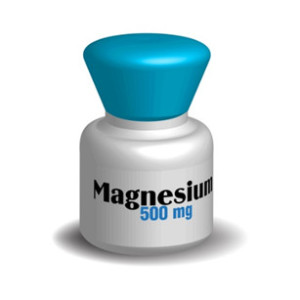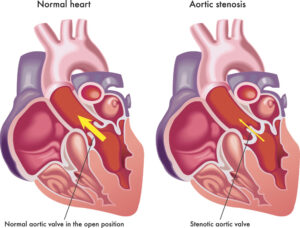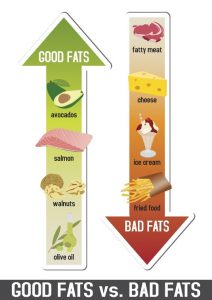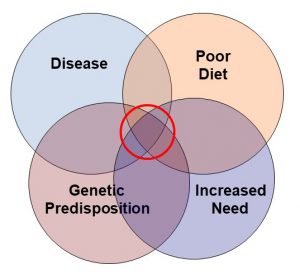How Much Should You Walk?
Author: Dr. Stephen Chaney
 The new year is almost here. If you are like millions of Americans, you may already be making plans to join a gym, get a personal trainer, or join a spin class.
The new year is almost here. If you are like millions of Americans, you may already be making plans to join a gym, get a personal trainer, or join a spin class.
The problem is these are all expensive options. And a good portion of that money is wasted. To put it into perspective, let’s look at some statistics
- Around 6 million Americans buy gym memberships every January.
- 67% of those memberships are never used.
- For those memberships used in January, another 50% are not in use 6 months later.
- Americans spend about 1.6 billion dollars on unused gym memberships every year.
- And that doesn’t include those gym memberships that are only occasionally used.
If you want to get fit and healthy in the new year, perhaps you should consider a less expensive option – like walking. Your only investments are a good pair of walking shoes and a device that keeps track of the number of steps you take (eg, Fitbit, smart watch, or smart phone).
You still may give up on your New Year’s goal of getting fitter at some point. But you won’t have wasted so much money.
Of course, you probably have some questions about the benefits of walking, such as:
- Is walking enough to significantly improve my fitness and health?
2) How far (how many steps) should I walk?
3) How fast should I walk?
Fortunately, two recent studies (B del Pozo-Cruz et al, JAMA Internal Medicine, 182: 1139-1148, 2022; J del Pozo-Cruz et al, Diabetes Care, 45: 2156-2158, 2022) have answered all three questions.
How Were These Studies Done?
 The first study (B del Pozo-Cruz et al, JAMA Internal Medicine, 182: 1139-1148, 2022) followed 78,500 participants (average age 61, 55% female, 97% white) enrolled in the UK Biobank study for an average of 7 years.
The first study (B del Pozo-Cruz et al, JAMA Internal Medicine, 182: 1139-1148, 2022) followed 78,500 participants (average age 61, 55% female, 97% white) enrolled in the UK Biobank study for an average of 7 years.
At the time of enrollment, each participant was given an accelerometer (a device that measures the number and frequency of steps) to wear on their dominant wrist for 24 hours/day for 7 days. The investigators used the accelerometer data to categorize several types of physical activity.
- Daily step counts (the average number of steps per day for 7 days). These step counts were further subdivided into two categories:
- Incidental steps (It was assumed that ˂40 steps/min represented steps taken that were incidental to normal daily activities).
- Purposeful steps (It was assumed that ≥40 steps/min represented steps taken as part of planned exercise).
- Stepping intensity (the highest frequency of steps/min averaged over 30 min intervals for all 7 days).
At the end of the study, each of these variables was correlated with the risk of premature deaths due to all causes, cancer, and heart disease.
The second study (J del Pozo-Cruz et al, Diabetes Care, 45: 2156-2158, 2022) was similar except that it:
- Used data from 1687 adults (average age = 55, 56% male, with diabetes or prediabetes when the study began) in the 2005-2006 National Health and Nutrition Examination Survey in the US.
- Followed participants for 9 years instead of 7.
- Only measured total steps/day
- Correlated total steps/day with premature death for participants who already had prediabetes or diabetes when they entered the study.
Walking Your Way To Health
Study 1 looked at the effect of walking on health outcomes in multiple ways.
 #1: Increase in number of steps/day:
#1: Increase in number of steps/day:
- On average study participants took an average of 7200 steps per day, but this ranged from a low of 3,200 steps/day to a high of 12,200 steps/day.
- Each increase of 2,000 steps/day was associated with a:
-
- 8% decrease in all-cause mortality.
-
- 11% decrease in cancer mortality.
-
- 10% decrease in heart disease mortality.
- Overall, increasing from 3,200 steps/day to 10,000 steps/day decreased all-cause, cancer, and heart disease mortality by around 36%.
- There was no minimum threshold to this beneficial effect of walking on the risk of premature death.
- The benefits of walking appeared to plateau at 10,000 steps/day.
#2: Increase in number of incidental steps/day (steps taken that are incidental to normal daily activities):
- On average study participants took 3240 incidental steps/day, but this ranged from a low of 2,100 steps/day to a high of 4,400 steps/day.
- Each 10% increase in incremental steps/day was associated with a:
-
- 6% decrease in all-cause mortality.
-
- 6% decrease in cancer mortality.
-
- 10% decrease in heart disease mortality.
#3: Increase in number of purposeful steps/day (steps taken as part of planned exercise):
- On average study participants took 4,600 purposeful steps/day, but this ranged from a low of 1,600 steps/day to a high of 8,600 steps/day.
- Each 10% increase in purposeful steps/day was associated with a:
-
- 7% decrease in all-cause mortality.
-
- 8% decrease in cancer mortality.
-
- 10% decrease in heart disease mortality.
#4: Increase in speed of walking or cadence. The measurement they used was “peak-30 cadence” – the  highest average steps/min during a 30-minute interval within a day:
highest average steps/min during a 30-minute interval within a day:
- On average study participants had a “peak-30 cadence” of 76 steps/min, but this ranged from a low of 47 steps/min to a high of 109 steps/min.
- Each 10% increase in “peak-30 cadence” was associated with a:
-
- 8% decrease in all-cause mortality.
-
- 9% decrease in cancer mortality.
-
- 14% decrease in heart disease mortality.
- The benefits of walking rapidly (increase in “peak-30 cadence”) were in addition to the benefits seen by increasing the number of steps per day.
- Overall, increasing from a “peak-30 cadence” of 47 steps/min to 109 steps/min decreased all-cause, cancer, and heart disease mortality by an additional 34%.
- There was no minimum threshold to this beneficial effect of increasing “peak-30 cadence” (the speed of walking) on the risk of premature death.
- The benefits of increasing “peak-30 cadence” appeared to plateau at 100 steps/min.
#5 Effect of walking on the prevention of heart disease and cancer: The investigators measured this by  looking at the effect of walking on the “incidence” of heart disease and cancer (defined as new diagnoses of heart disease and cancer) during the study. They found.
looking at the effect of walking on the “incidence” of heart disease and cancer (defined as new diagnoses of heart disease and cancer) during the study. They found.
- Each 2,000-step increase in the total number of steps/day decreased the risk of developing heart disease and cancer by 4% during this 7-year study.
- Each 10% increase in the number of purposeful steps/day decreased the risk of developing heart disease and cancer by 4% during this study.
- Each 10% increase in “peak-30 cadence” decreased the risk of developing heart disease and cancer by 7% during this study.
The authors concluded, “The findings of this population-based…study of 78,500 individuals suggest that up to 10,000 steps/day may be associated with a lower risk of mortality and cancer and CVD incidence. Steps performed at a higher cadence may be associated with additional risk reduction, particularly for incident disease.”
Study 2 extended these findings to diabetes. They started with participants that had either prediabetes or  diabetes and followed them for 9 years. They found that:
diabetes and followed them for 9 years. They found that:
- Study participants with prediabetes ranged from a low of 3,800 steps/day to a high of 10,700 steps/day.
-
- Prediabetic participants walking 10,700 steps/day were 25% less likely to die during the study than participants walking only 3,800 steps/day.
- Study participants with diabetes ranged from a low of 2,500 steps/day to a high of 10,200 steps/day.
-
- Diabetic participants walking 10,200 steps/day were also 25% less likely to die during the study than participants walking only 2,500 steps/day.
- Even small increases in the number of steps per day decreased the risk of premature death for both prediabetic and diabetic participants.
- Once again, 10,000 steps/day appeared to be the optimal dose to lower the risk of premature death for both diabetic and prediabetic patients.
The authors of this study concluded, “Accumulating more steps/day up to ~10,000 steps/day may lower the risk of all-cause mortality of adults with prediabetes and diabetes.”
How Much Should You Walk?
 That was a lot of information. You are probably wondering what it means for you. Let’s start with the big picture:
That was a lot of information. You are probably wondering what it means for you. Let’s start with the big picture:
- Going from couch potato to 10,000 steps per day may reduce your risk of premature death due to all causes, cancer, and heart disease by 36% (24% if you are already prediabetic or diabetic).
- Increasing the speed with which you walk from 47 steps/min to 109 steps/min sustained for 30 minutes may reduce your risk of premature death by an additional 34%.
In other words, simply walking more and walking faster can have a significant on your health. I am not recommending walking as your only form of exercise. I’m just saying not to consider it inferior to other forms of exercise.
- There is no lower limit to the benefits of walking. Even small increases in the number of steps/day you take and the speed with which you walk may have a beneficial effect on your health.
In other words, you don’t need to speed walk 10,000 steps/day to reap a benefit from walking. Even small increases are beneficial. That’s good news for those of you who may not be able to speed walk long distances. It also means that if you are a couch potato, you don’t need to attempt 10,000 steps at high speed from day 1. You can work up to it gradually.
- Incidental walking (walking that is incidental to your daily activities) is almost as beneficial as purposeful walking (walking as part of a planned exercise).
That’s good news for those of you who may not have time for long walks. It also means that advice like “park your car at the far end of the parking lot and walk” or “take the stairs rather than the elevator” can have a meaningful impact on your health.
- The benefits of walking appear to max out at around 10,000 steps per day and a cadence of 100 steps/min sustained for 30 minutes.
That means once you get to those levels, it’s time to consider adding other kinds of exercise to your regimen. More and faster walking may offer little additional benefit.
Finally, in the words of the authors, “This information could be used to motivate the least active individuals to increase their steps and the more-active individuals to reach the 10,000-step target.”
The Bottom Line
The new year is almost here. If you are like millions of Americans, you may already be making plans to join a gym, get a personal trainer, or join a spin class.
If you want to get fit and healthy in the new year, perhaps you should also consider a less expensive option – like walking.
Of course, you probably have some questions about the benefits of walking, such as:
1) Is walking enough to significantly improve my fitness and health?
2) How far (how many steps) should I walk?
3) How fast should I walk?
Fortunately, two recent studies have answered all three questions. They found:
- Going from couch potato to 10,000 steps per day may reduce your risk of premature death due to all causes, cancer, and heart disease by 36% (24% if you are already prediabetic or diabetic).
- Increasing the speed with which you walk from 47 steps/min to 109 steps/min sustained for 30 minutes may reduce your risk of premature death by an additional 34%.
- There is no lower limit to the benefits of walking. Even small increases in the number of steps/day you take and the speed with which you walk may have a beneficial effect on your health.
- Incidental walking (walking that is incidental to your daily activities) is almost as beneficial as purposeful walking (walking as part of a planned exercise).
- The benefits of walking appear to max out at around 10,000 steps per day and a cadence of 100 steps/min sustained for 30 minutes.
In the words of the authors of these studies, “This information could be used to motivate the least active individuals to increase their steps and the more-active individuals to reach the 10,000-step target.”
For more details on this study and what it means for you, read the article above.
These statements have not been evaluated by the Food and Drug Administration. This information is not intended to diagnose, treat, cure, or prevent any disease.





























